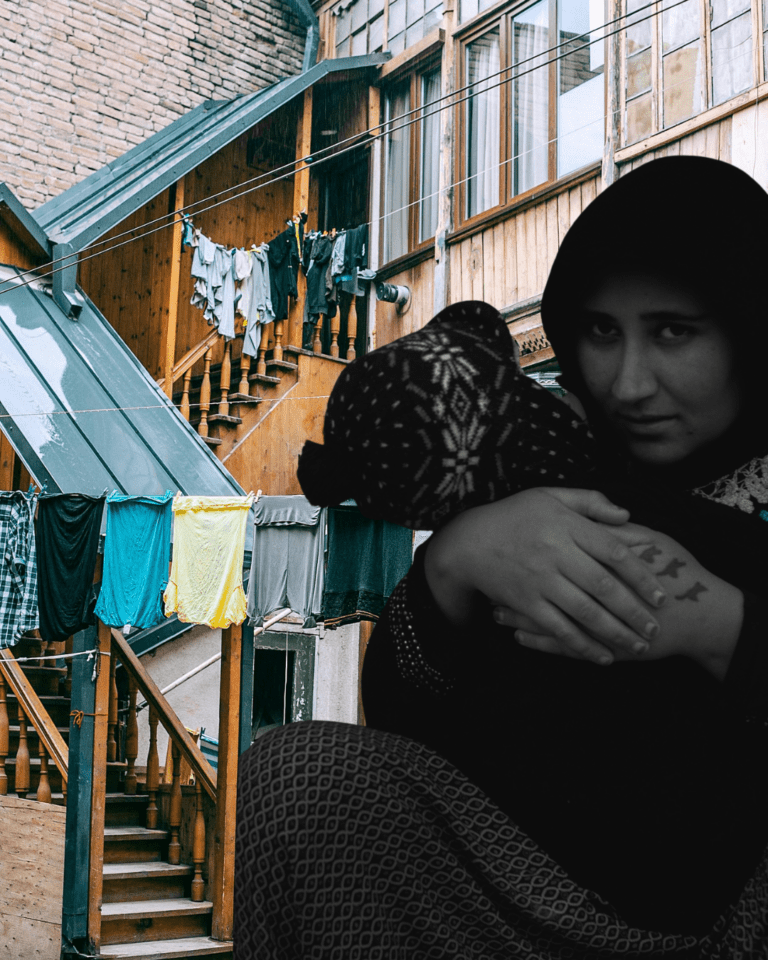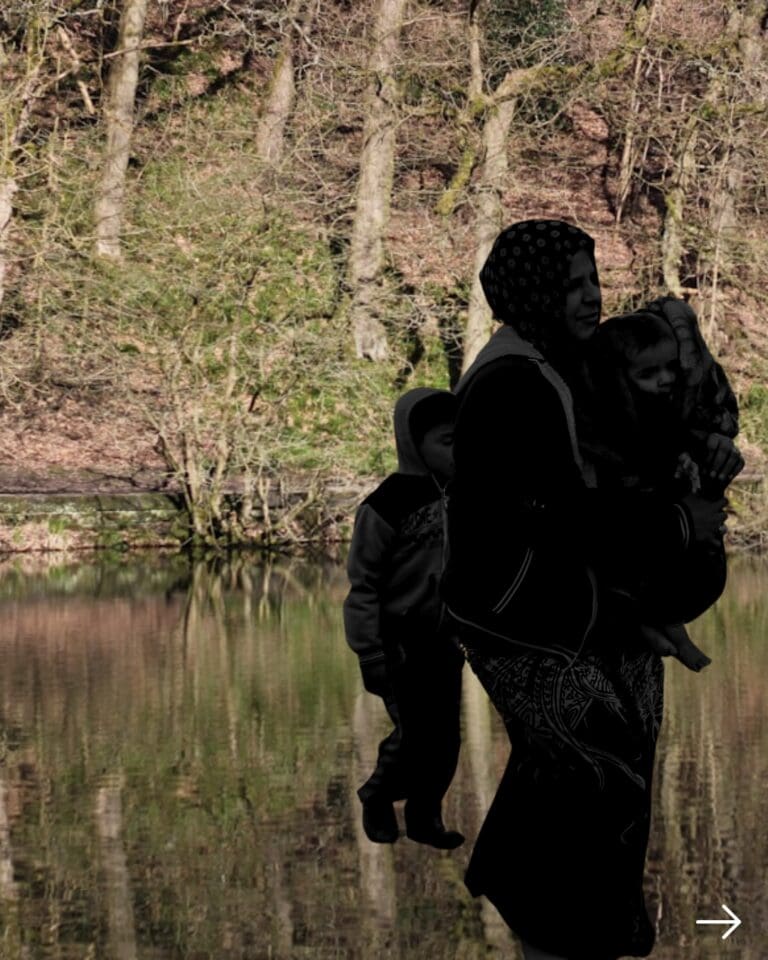World Refugee Day: Navigating the challenges of refugee employment and entrepreneurship
This World Refugee Day, let’s look beyond the numbers to understand the challenges refugees face in accessing employment and entrepreneurship opportunities. Every one of us has a role to play in helping address these obstacles through targeted measures such as legal advocacy, financial support, skill development, and networking opportunities. Let’s take meaningful action to support refugee rights and empower them to rebuild their lives with dignity and hope.
- Impact Hub Network
- Al Siew
For millions of refugees worldwide, the right to work is not equally accessible. According to the United Nations High Commissioner for Refugees (UNHCR), approximately 85% of the estimated 26 million refugees are hosted in low- and middle-income countries, where finding work often presents huge challenges. Legal barriers further complicate refugees’ ability to become entrepreneurs, own and operate businesses, or access business financing.
A report by the Center for Global Development, Asylum Access, and Refugees International highlights that 55% of refugees live in countries that significantly restrict their right to work, while 19% reside in countries with severe restrictions. This equates to at least 21.5 million people who face barriers to housing, employment, healthcare, and education, thus adding unique levels of adversity and disadvantage. Additionally, LGBTQI+ refugees face heightened risks of discrimination, harassment, and violence from authorities, the general public, and other refugees.
Across different regions and countries, the disparity in work rights and conditions for refugees varies widely. Some countries, particularly in Latin America, boast strong legal frameworks, but even when laws are in place, the economic, social and bureaucratic barriers to employment are immense. Refugees often find themselves trapped in a cycle of poverty and exclusion, struggling to make ends meet.
“Mexico opened the doors for us, gave us the papers, gave us opportunities to live a better life but I currently work in a restaurant, because my previous work experience, as a ceramic instructor, construction worker and cabinet door manufacturer was not recognised.”
- Refugee in Mexico

Similarly, in Europe, refugees may benefit from protective laws and regulations, but complex application processes and limited local networks hinder their economic independence.
“Securing a job in my profession is almost impossible because many professions require going through long procedures. Generally, knowing someone who can introduce you to the employer makes it much easier to get a job. The local community and various organisations are incredibly supportive. However, the process is challenging due to language barriers, bureaucratic hurdles and the need to prove qualifications that are difficult to verify from my home country.”
- Refugee in the Netherlands

Meanwhile, Africa and the Middle East host substantial refugee populations while providing a mix of opportunities and restrictions. Often entrepreneurship ecosystems are still in their infancy, and entrepreneurship for refugees poses a challenge.
“Life was hard, especially in a new place. I did not have enough to eat. I started a business, selling injera (an Ethiopian flatbread) and coffee and also sold some beaded wares and fabrics. It took a lot of work to maintain my business, I would struggle to make ends meet with that small business.”
- Refugee in Kenya

The Asia Pacific region is known to have the fewest economic opportunities and weakest laws and working conditions for refugees. While states in Asia Pacific have informally hosted millions of refugees over several decades, most refugees in the region are not granted work or business ownership rights, nor do they receive access to education. Given these constraints, refugees often engage in entrepreneurial activities, such as self-employment and starting microbusinesses but they still face considerable discrimination.
“It is very hard for me to see myself as a part of the city, even if I had a higher salary or fewer working hours. We don’t have qualifications, we are low-skilled migrants, so people still discriminate against us. I speak a bit of the local language, but even then they still know that I am a migrant.”
- Refugee in Malaysia
Access to capital and navigation of local banking and financing systems pose universal challenges. Barriers range from formal legal impediments to practical issues, like obtaining the necessary documentation to use the banking system, which obstructs refugee entrepreneurship.

How Entrepreneurial Support Organisations (ESOs) can provide support
Entrepreneurial support organisations are well positioned to equip refugees with the business skills and access to networks and capital that they need to start and grow businesses. Measures must be deliberate to ensure that entrepreneurial opportunities are inclusive. In addition to dedicated training programmes, financial support from labour market integration support actors could help to de-risk entrepreneurship, enabling more vulnerable individuals to start businesses.
There is an emerging body of good practices in entrepreneurial support for newcomer entrepreneurs. Based on our report, ‘Mapping Refugee & Migrant Entrepreneurship Ecosystems in Europe‘, with support from The Human Safety Net, here are some recommendations:
Access to finance
- Advocate for the legal framework to facilitate refugee and migrants’ access to capital
- Negotiate agreements with banks that have more social and inclusive criteria, to facilitate access to credit
- Strengthen networking and communicate better the finance options already available
- Provide specific grants within programmes for refugee and migrant entrepreneurs
- Promote crowdfunding of resources
Enhance entrepreneurial skills & networks
- Adapt training, workshops, and mentorship programmes to boost entrepreneurial skills
- Create networking opportunities among refugees and the business community
- Develop experiential learning processes
- Offer training in accounting and matchmaking with accountants
Building financial capital
- Advocate for policymakers and funders to secure funding for business development
- Improve cooperation with job centres and employment agencies to open access to grants and micro-loans
- Promote equity crowdfunding
- Create a fund for investing in refugee and migrant entrepreneurs
- Support in identifying opportunities for grants and public funding
How businesses and companies can provide support
Addressing the employment challenges faced by refugees also requires concerted efforts from businesses and companies:
- Employment visa quotas for refugees:
Businesses can allocate a quota of employment visas for qualified refugees, providing them with opportunities to start new lives in safer countries. Companies can also raise funds for privately sponsored resettlement. - Volunteer programmes with high stipends:
Developing volunteer programmes that offer high stipends can help refugees gain valuable work experience – even in countries that bar them from employment – and later integrate into the workforce more effectively. - Support local advocacy organisations:
Supporting organisations that advocate for the work rights of refugees ensures that they can access employment opportunities and are treated fairly in the labour market.
While having robust laws in place is a crucial first step, it is not enough on its own to guarantee refugees can work and live with dignity. Bridging the gap between legal rights and actual conditions requires a multifaceted approach involving financial support, community engagement, and policy advocacy. By working together, we can help ensure that refugees around the world can access the opportunities they need to rebuild their lives and contribute to their new communities.
—
Quote sources:
1. Mexico – The refugee entrepreneurship process from/in emerging economies by Carlos Alberto Santamaría Velasco, María del Mar Benavides Espinosa, Virginia Simón Moya.
2. Kenya – RefugePoint.
3. Malaysia – Urban Mixed Migration Kuala Lumpur Case Study by Mixed Migration Centre.
Unleash your impact potential today
Join our free global membership for the latest news, resources, and inspiring stories of entrepreneurial impact. Sign up now and ignite your journey towards making a difference.
You also might like

World Refugee Day: Navigating the challenges of refugee employment and entrepreneurship
World Refugee Day: Navigating the challenges of refugee employment and entrepreneurship

PRIDE month: Celebrating LGBTIQ+ businesses and initiatives for a more inclusive world
PRIDE month: Celebrating LGBTIQ+ businesses and initiatives for a more inclusive world

